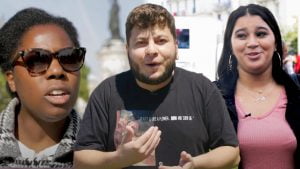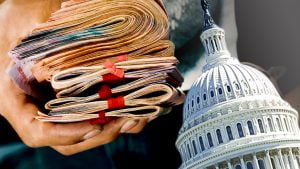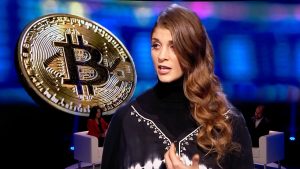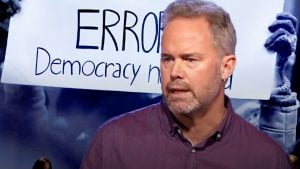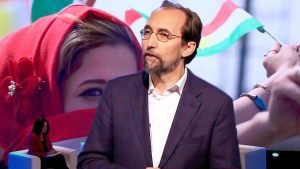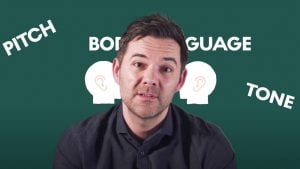
Loss of Trust
Public trust in governments is near historic lows, as confidence plummets and belief in institutions’ basic fairness and functions erodes each day. How can we restore trust? Or should we not? Should we move trust to new social initiatives and technologies instead of the old formal bodies of government?
Unit 1: Doha Debates Asks
Doha Debates Asks: Can Governments Be Trusted?
We hit the streets of Rio, Paris, and Tunis and asked people their thoughts about their trust in government. Here’s what they said:
Essential questions
1. Can the government be trusted?
2. What is the role of the government?
3. Do you think voting matters?
4. What is the first word that comes to mind when you hear “politician”?
5. Would you ever run for office?
6. What is the best way to get your voice heard?
7. Do you think you have the power to change the system?
8. What is your message to world leaders?
Unit 2: Do You Trust the Government
Do You Trust The Government?
Essential questions
- Why do people appear to be fed up with government?
- What role does trust play in society?
- Why do people trust money as a method of exchange?
- Is crypto-currency a safer method of money?
- Should people trust Artificial Intelligence to make decisions?
- It is possible to rebuild trust in government?
- Could technology allow people to have a greater and more direct voice in government?
Unit 3: Blockchain: Massively Simplified and Other Short Videos
Professionally, Richie Etwaru is a c-level at a Fortune 500 Company, an author, the owner of international patents, the founder of multiple ventures, an experienced keynote speaker, an angel investor, a member of advisory boards, and a recognized thought leader in the area of digital, technology, and design.
Specific to this TEDx talk, Richie is an adjunct professor of blockchain management at Syracuse University in New York, he has delivered over 100 blockchain keynotes across the world, he has written well read blockchain blogs, he has been interviewed on blockchain in online TV shows, and has advised governments and venture funds on blockchain opportunities.
Essential questions
- Why does the trust gap in society continue to expand?
- In what ways are trust and reputation related to each other?
- How might blockchain create trust in companies?
- What are ways blockchain will allow for greater trust?
- How should people throughout the world share common resources?
- What if people were randomly selected to be in government?
- In what ways might diversity trump ability?
Unit 4a: Speaker Toni Lane Casserly
Toni Lane Casserly: The argument for blockchain technology
Essential questions
- Why is trust in government at an all time low?
- How does the government fail to serve the people?
- Do people have more power voting with a credit card or through an election?
- In what ways might people have a greater ownership of their rights?
- How might blockchain give individuals great social and political power?
- Why do people think the government does not have the humanity to move society forward?
Unit 4b: Speaker Brett Henning
Brett Hennig: Replace Politicians With Randomly Selected People
Essential questions
- Why is trust in government at historic lows?
- How might societies thrive even with low trust in government?
- Why do people often not actually know what or who they are voting for?
- In what ways do even the worst governments still help their people?
- What are ways government can engage with people?
- What basic services should all governments provide?
- What issues are there to random citizens’ assemblies being part of government?
Unit 4c: Speaker Prince Zeid Ra'ad Zeid al-Hussein
Zeid Ra’ad al-Hussein: Rebuild trust in government
Essential questions
- Why is it possible to make small adjustments between individuals?
- Why are people seduced by revolutionary thinking?
- How might harmony be achieved between groups with different ideas?
- What might happen if all people were required to vote?
- How might things change if people over 65 could no longer vote?
- What would make young people better leaders? What qualities make for the best political leaders?
Unit 5: Connector
How to get along with other people
Essential questions
- What is a majlis?
- What are drawbacks to randomly selected people working with people in positions of power?
- How might change disempower people?
- Why do you trust the people you do?
- Where does change come from in society?
- Is there a need for a intermediary position like that of the government?
- What other forms of government could develop to create greater trust?
- In what ways might technology lessen trust?
About Deep Dive
Doha Debates hosts discussions on the world’s most pressing challenges to bridge differences, build consensus and identify solutions. In each moderated live debate, experts share their experiences and propose concrete plans. Doha Debates also offers digital resources such as videos and articles to help students build a deep understanding of the issues and to foster ongoing conversations.
